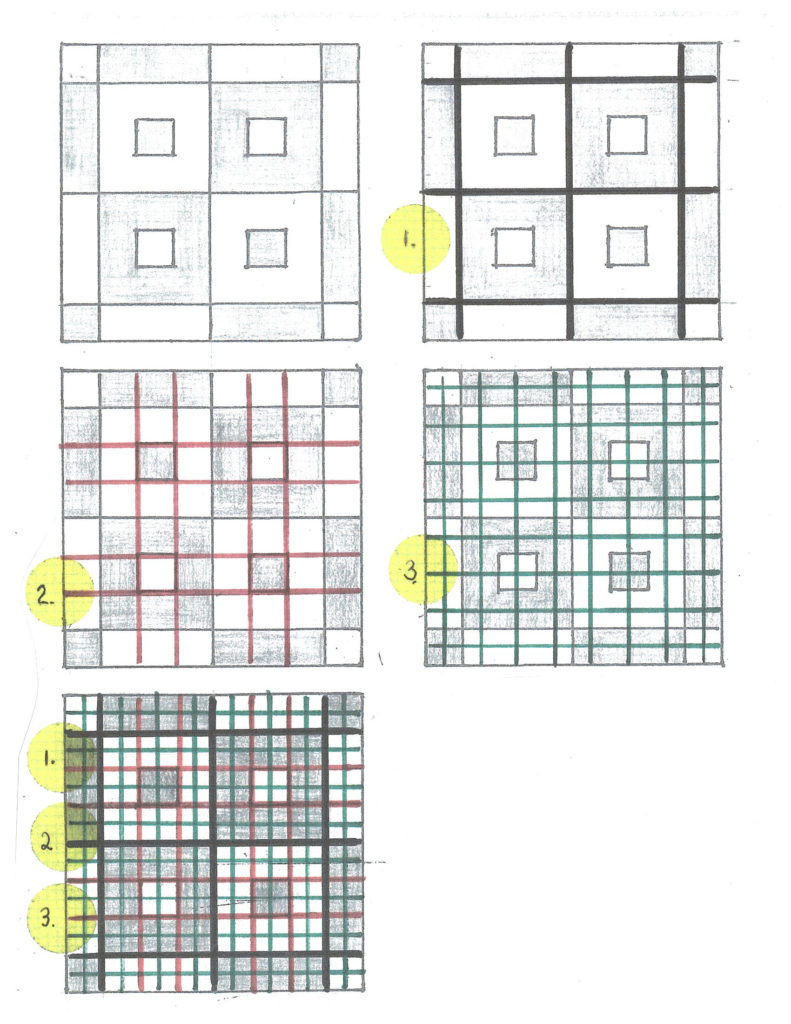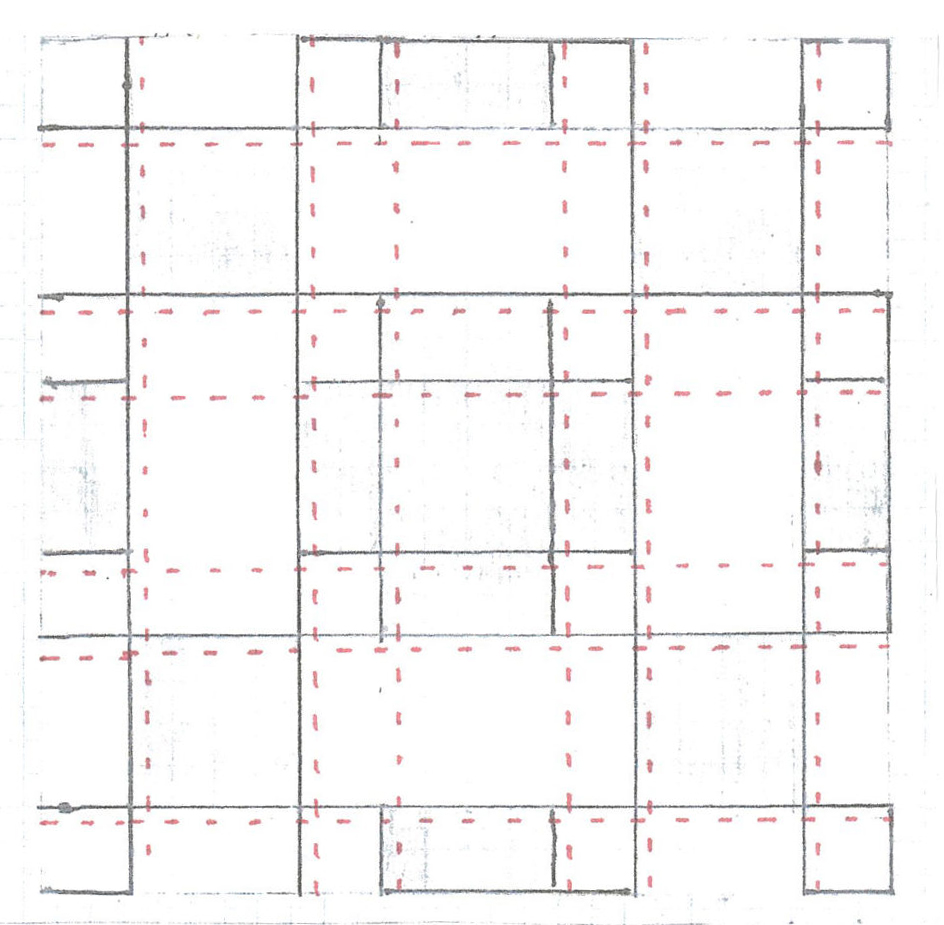This is one of the main features that encouraged Sandy Petsche to design her new pattern series Quick Kids Quilts.

Big pattern pieces, no triangles, beginner friendly, all two-color quilts, and all smaller size quilts all of these features help to make these patterns very easy to machine quilt with your own machine and a walking foot.
There are several ways to quilt these quilts so here is an example using one of the designs showing you a variety of ways you can accomplish your quilting very easily.
Mark lines as needed using any marking pen or chalk that is easily removed when you are finished.
Below you will see diagrams of the following:
The first picture is a baby quilt with no quilting.
Option #1: Sew in the seams (stitch in the ditch) that go from edge to edge.
Options #2 and #3: When the seams lines do not all go from edge to edge, mark a straight line from seam line to seam line across the fabric that does not have a seam. This makes a continuous quilting line across the quilt top.
Last image 1.2.3: When more quilting is needed or desired, mark off additional quilting lines from edge to edge.

Instead of stitching in the ditch, this last option below is to sew on either or both sides of the seams using your presser foot as a guide.

How much quilting is required?
Check the manufacturer directions on the batting package to see how many inches apart the quilting should be. Note: there is no such thing as too much quilting it is up to you!
Thread colors are also your choice. One tip is to use beige or light gray if you have many colors of fabric to sew across. These blend in pretty well. Another great idea is to use a variegated (multi-color) thread. These look really nice for quilting that show up on purpose. REMEMBER to match your bobbin thread to the back of your quilt if you want it to blend in and not show up.
Try out some colors on scraps and have fun!!


Pingback: Quick Quilts! - QuiltWoman.com BlogQuiltWoman.com Blog